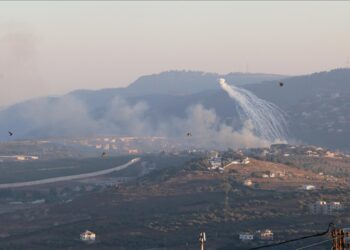Human Lives Human Rights: Today is the 20th anniversary of the African Union Convention on Preventing and Combating Corruption. As a result, human rights organizations are urging West and Central African countries to cease the persecution of human rights defenders who expose corruption, bribery, and abuse of power. Instead, they are calling for these states to implement tangible and effective measures to safeguard and assist these individuals.
Repression of Anti-Corruption Defenders in West and Central Africa Sparks Concerns for Human Rights
Human rights advocates who play a critical role in fighting corruption and defending human rights, routinely endure attacks, intimidation, harassment, and persecution for their efforts.
The report titled “Anti-Corruption Fight in Peril: Crackdown on Anti-Corruption Human Rights Defenders in West and Central Africa” sheds light on the precarious situation faced by anti-corruption activists in 19 countries across West and Central Africa. These individuals face the constant threat of arrest, harassment, detention, substantial fines, and even death for their efforts to expose corruption. Furthermore, some activists are subjected to court cases and criminal prosecutions, which directly infringe upon their right to freedom of expression.
The level of repression experienced by anti-corruption human rights defenders in West and Central Africa is truly alarming. These individuals have a crucial role in combating corruption and, in turn, safeguarding human rights. However, they consistently face attacks, intimidation, harassment, and persecution simply for revealing the truth.
It is imperative for governments in the region to fulfill their international human rights obligations by respecting, protecting, promoting, and fulfilling the rights of individuals who courageously oppose corruption and advocate for human rights. These governments must address the prevailing culture of impunity that perpetuates widespread corruption, leads to additional human rights violations, and denies victims the opportunity to seek justice and obtain effective remedies.
Corruption is not just a matter of governance or ethics; it is also a significant human rights concern. It directly impacts the effective enjoyment of both individual and collective rights that are safeguarded by international and regional human rights treaties. Corruption obstructs the ability of law enforcement officers, judges, prosecutors, and lawyers to carry out their duties impartially, thereby undermining the integrity of the justice system. Moreover, corruption can lead to instances of ill-treatment, torture, or even deaths in custody. Economically and socially vulnerable groups are particularly affected as corruption deprives them of essential income and resources. Ultimately, corruption erodes the capacity of states to fulfill their human rights obligations.
However, individuals who bring attention to these abuses consistently face repression, intimidation, and harassment at the hands of authorities throughout West and Central Africa. This includes the manipulation of defamation and “fake news” laws, imposition of excessive fines, arbitrary arrests, and the use of threats and physical violence to silence activists and journalists who expose corrupt practices.
Advocates for human rights are urging states to implement and enhance legislation that safeguards anti-corruption human rights defenders (HRDs) from reprisals. Such laws would establish an environment where these defenders can conduct investigations and expose corruption and its impact on human rights without fear of retaliation. Presently, only Côte d’Ivoire, Mali, and Niger have adopted laws specifically aimed at protecting HRDs, while Ghana is the sole country with dedicated legislation to protect whistleblowers.
In the region, ten countries have embraced access to information laws, enabling citizens to access information held by public institutions and hold influential individuals and entities accountable. Nevertheless, the existence of high fees imposed by information holders and misconceptions that these laws solely benefit journalists pose significant challenges.
In addition to access to information laws, it is crucial for states to enact legislation, establish policies, and implement effective practices that provide robust protection against corruption. Furthermore, there should be a strong commitment to prosecuting those responsible for engaging in corrupt practices.
Corruption is a pervasive problem that severely undermines fundamental human rights throughout West and Central Africa. Rather than targeting those who expose corruption, authorities should prioritize the protection of anti-corruption human rights defenders (HRDs) and create an environment where civil society and the press can fearlessly hold those in power accountable. This approach is essential for ensuring the enjoyment of all human rights in the region.


















